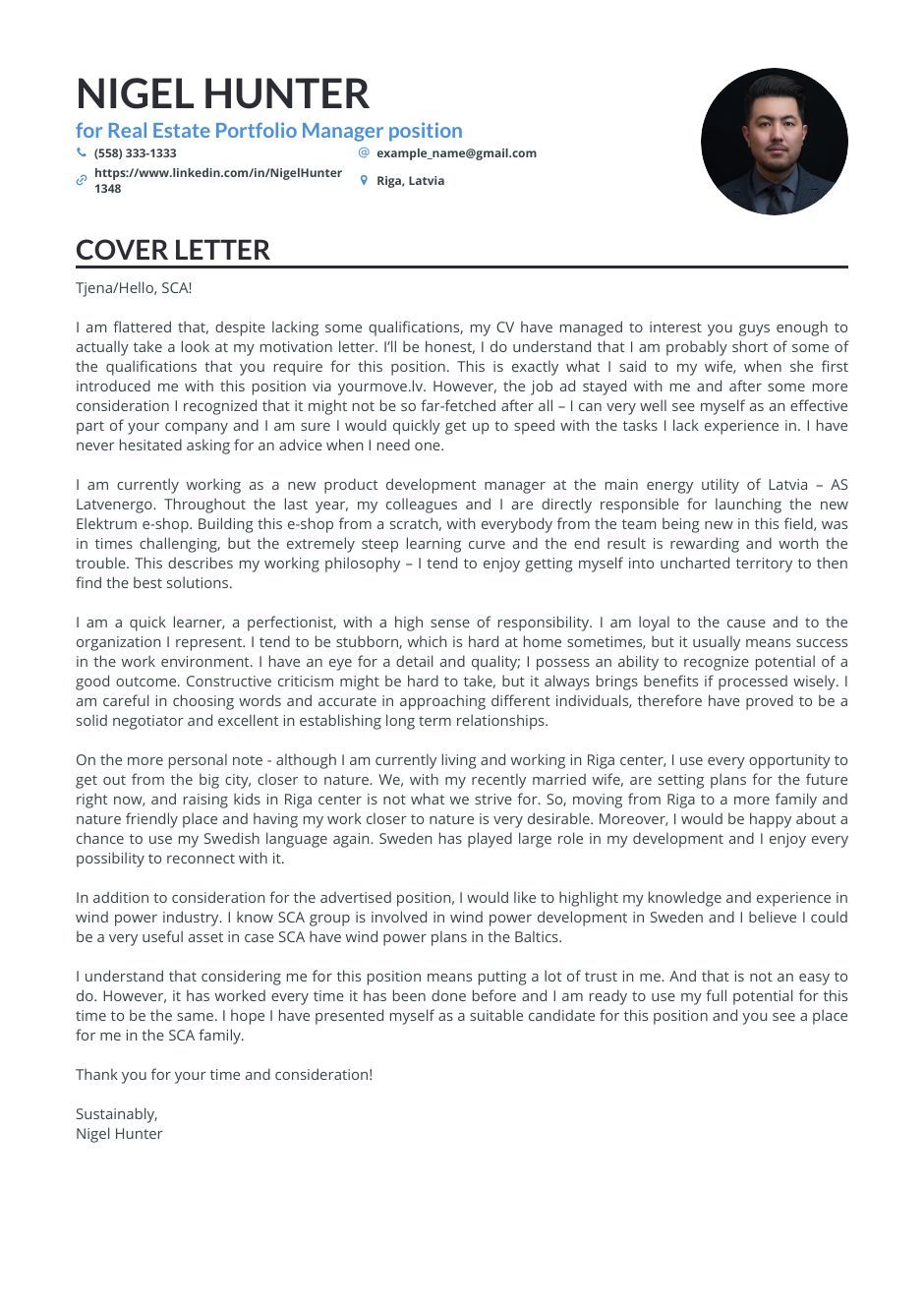What’s the best thing about writing a Real Estate Portfolio Manager cover letter? You get to decide which parts of your experience need to be highlighted and which should better be skipped!
And what’s the thing that will make every hiring manager want to learn more about you? Mentioning the tools that have helped you overcome challenges and improve your skillset.
Let's look at our professional tips and examples that will help you write a memorable cover letter and land an interview.
Drop your resume here or choose a file.
PDF & DOCX only. Max 2MB file size.
Make your real estate portfolio manager cover letter stand out
So what’s the difference between a cover letter and a resume?
In short – the resume showcases your achievements and skills, while the cover letter focuses more on your personality and motivations.
Of course, you should mention some of your relevant skills in the cover letter as well. But make sure you’re not repeating your resume word by word.
Now let's move on to the things that make every cover letter great!
Choose the right salutation and craft a strong introduction
Addressing your cover letter to a specific person works in your favor for two reasons: it shows your attention to detail, and it proves that you’ve taken the time to research who the person might be.
However, sometimes this might be much more difficult than expected. On such occasions, we advise you to focus on salutations that go beyond the impersonal “To Whom It May Concern”.
Here’s a brief list of suitable phrases:
- Dear Ms. Smith
- Dear Peter Roberts
- To the [company name] Recruitment Team
- Dear Hiring Manager
The introduction of your cover letter is the first thing the hiring manager will read. Logically, having a strong introduction is your chance of getting their attention.
In order to do that, you need to get creative. Don’t just do what everyone else’s been doing for years, i.e. writing “I found this job opening on that website and decided to apply”.
Rather, show that you are genuinely excited about the position and the company. You could do that by mentioning your love for the industry or what you can bring to the table.
Link your real estate portfolio manager soft and hard skills to your achievements
While the resume is considered the best place to showcase your hard skills and achievements, the cover letter should tell a story and prove your enthusiasm for the field.
This is why we advise you to focus on soft skills and results. Think about all your soft skills and how they have helped you grow as a professional and crush your goals. Then turn this into your own very short success story.
Make sure to include some hard skills too, especially the ones listed as part of the requirements section of the job advert. This will guarantee that you pass applicant tracking systems (ATS) that screen applicant documents for keywords.
And remember – the cover letter should include new information without repeating your whole resume. It needs to offer additional value to the recruiter.
Show that you did your research before applying
Showing that you’ve researched the company and are familiar with it is a good way to prove your work-readiness.
It will also point the recruiter to the fact that your skills and qualifications will have a long-term impact on the company. Just link some of your strengths to the ways in which current or potential issues can be resolved.
Finish your cover letter with a call to action
While a strong introduction makes a great first impression, a confident, yet considerate conclusion is essentially what will get you a callback.
There are different ways to end your cover letter. But remember – the closing line you choose should match the company culture.
Your safest bet would be going for traditional phrases like “Looking forward to hearing from you” or “Looking forward to your reply”. For bonus points, add a simple “Thank you for your time and consideration”.






